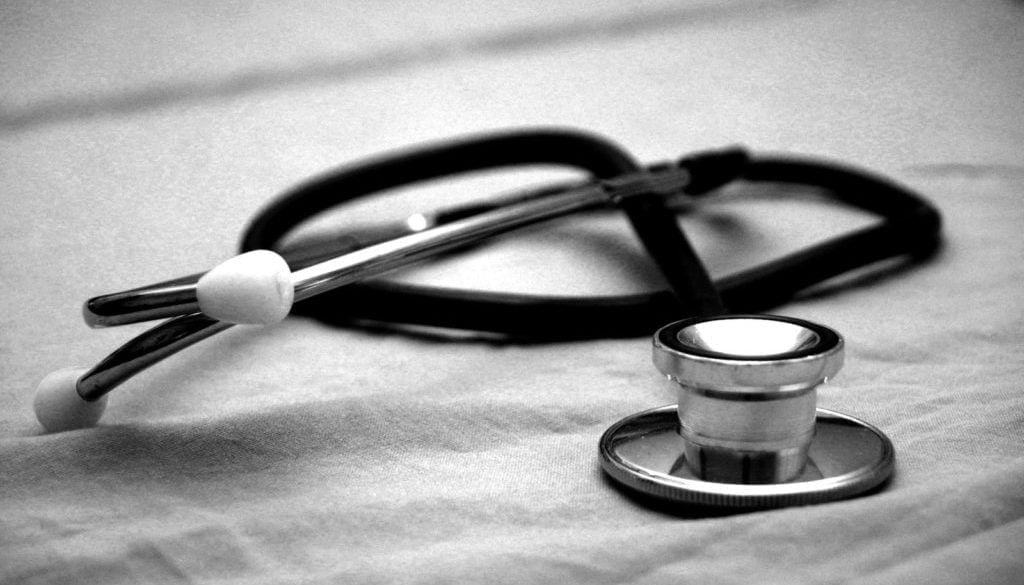What Can We Do About Medical Mistrust Harming Americans’ Health?
Jennifer RichmondRecently, several national news outlets have written about how trust is collapsing in America. Fewer than 1 in 3 Americans think government officials are credible, and over 60% of Americans find it hard to assess what is real versus fake news. These trends can contribute to truth decay—a phenomenon marked in part by decreasing trust in previously respected sources for facts. While news outlets are covering truth decay in the media and government, another type of decay isn’t getting as much attention despite the danger it poses for public health—trust decay in U.S. healthcare, i.e., medical mistrust.
Over the past several decades, medical mistrust—or suspicion of healthcare providers, organizations, and/or systems—has emerged as an important and prevalent public health problem. Only 23% of Americans express a great deal or quite a lot of confidence in the healthcare system. Additionally, the U.S. performs poorly compared to other countries in its level of public trust in doctors, ranking 24th out of 29 high-income countries.
How medical mistrust may harm our health
These growing levels of medical mistrust are alarming given that medical mistrust is associated with negative health outcomes, such as underutilization of healthcare, lapses in recommended cancer screenings, and poor self-reported health status. Indeed, growing research suggests that Americans may avoid or delay seeking healthcare from providers and a system they do not trust. Medical mistrust can also be dangerous for those who trust doctors and regularly seek healthcare. For example, individuals with communicable diseases who forgo medical care they do not trust may spread diseases to others throughout communities, even those who themselves seek care.
Where does medical mistrust come from?
More research is needed about the origins of medical mistrust. Importantly, we must understand that medical mistrust isn’t simply an attitude that needs to be “fixed.” To be sure, believing conspiracy theories (such as that the government created HIV to get rid of certain populations) may affect trust. In these situations, correcting misinformation may be helpful.
However, doctors, researchers, and other actors within the healthcare system must take a step back and consider that we have not yet earned the public’s trust. From many perspectives, the U.S. healthcare system does not deserve trust.
From many perspectives, the U.S. healthcare system does not deserve trust.
Each year, about 250,000 Americans die because of medical errors. Consequently, some researchers argue that medical errors should be classified as the third leading cause of death in the U.S. Furthermore, 20% of U.S. healthcare spending may be wasteful, such as money spent on medical treatments that people don’t actually need. Why should people trust a healthcare system that makes so many mistakes and wastes so much money?
The U.S. healthcare system is particularly undeserving of trust from people of color. Many researchers note how the Tuskegee Study of Untreated Syphilis in the Negro Male may contribute to medical mistrust, especially in Black communities. In this study, the U.S. Public Health Service studied how untreated syphilis progressed in Black men but never told them they weren’t being treated. The researchers also never told participants the true nature of the study and continued studying their disease for decades, even after scientists discovered that penicillin could effectively treat syphilis. The Tuskegee Study’s legacy may contribute to mistrust, but research suggests that other root causes may also play a key role (e.g., contemporary negative experiences with the healthcare system).
Why should people trust a healthcare system that historically abused people of color and continues delivering suboptimal care to diverse communities?
Although the Tuskegee Study ended in the 1970s, people of color still experience harm from the healthcare system. Prior research suggests that people of color get worse healthcare than do White Americans. These studies note that your chances of receiving high-quality healthcare may depend on your race or ethnicity. Indeed, most healthcare providers harbor implicit biases that spark negative attitudes towards people of color and may affect treatment decisions. Why should people trust a healthcare system that historically abused people of color and continues delivering suboptimal care to diverse communities?
So, what can we do about medical mistrust?
To move forward and regain trust, healthcare systems must accept responsibility for past injustices (e.g., unethical research practices) and work to end current injustices (e.g., widespread medical errors and disparities in quality of care). Healthcare systems should also measure and track trust and take action when indicated to earn public trust in their organizations. In these efforts, the healthcare system should engage patients in conversations about medical mistrust and partner with them in efforts to earn trust. A recent viewpoint published in the Journal of the American Medical Association echos the need for healthcare organizations to measure trust as part of evaluation efforts and engage patients when designing potential solutions.
Healthcare systems should also measure and track trust and take action when indicated to earn public trust…
Undoubtedly, this work will not be easy or simple. These are complicated problems that will require innovative and perhaps controversial thinking. For example, could we hold healthcare systems accountable for how much people trust them? Should distrusted doctors be paid less than trusted ones? How should we appropriately measure trustworthiness? This work may also be uncomfortable, especially as health systems work to address factors like racism that contribute to implicit bias and other problems within their organizations.
These ideas are just a start. The bottom line is that we must pay attention to trust decay in America’s healthcare system because our lives are at stake. It’s time to get creative and uncomfortable and start working towards a healthcare system that deserves public trust.






October 16, 2020 @ 1:25 pm
I am glad to see this article, as well as the many others on this topic that have been published. I can’t help but wonder when the medical community will actually notice that their patients have grown tired of the “stays quo” in American healthcare. One issue not me ruined in this article is the continuing discrimination against woman. It is very real and truly devestating. My own experiences have shown me that very few providers have outgrown the notion that females are either “hysterical” or “hormonal” and frequently dismiss, degrade, and discriminate based on gender. To ignore these things is to continue to allow a cycle of harm that impacts millions. Woman are consistently the victims of abuse and neglect in so many areas of American culture, shouldn’t medical providers and leaders work as hard as possible to make Medicine the “safe haven” it claims to be?